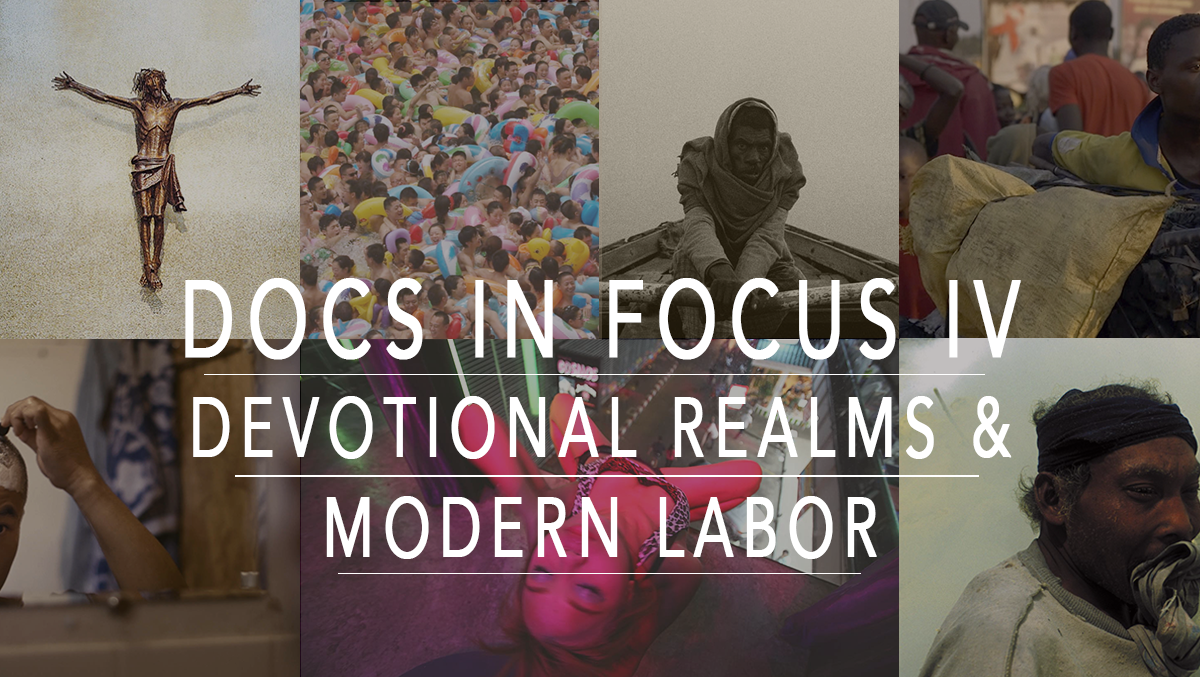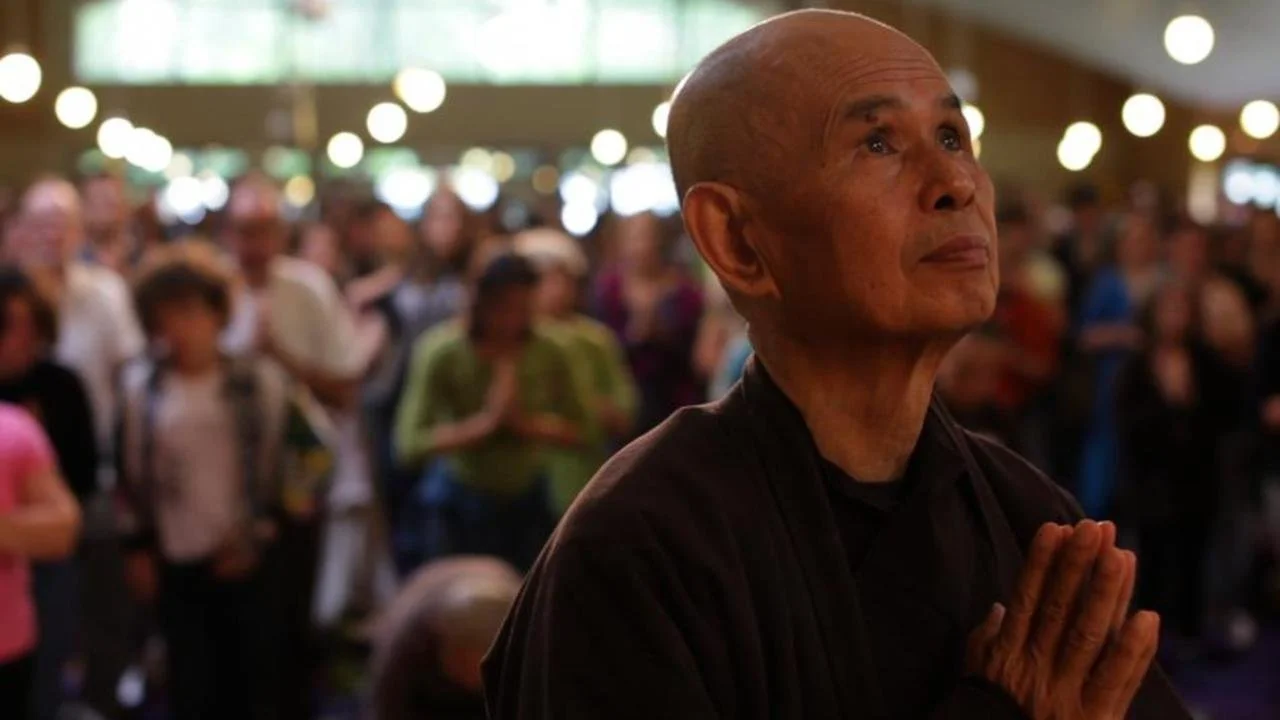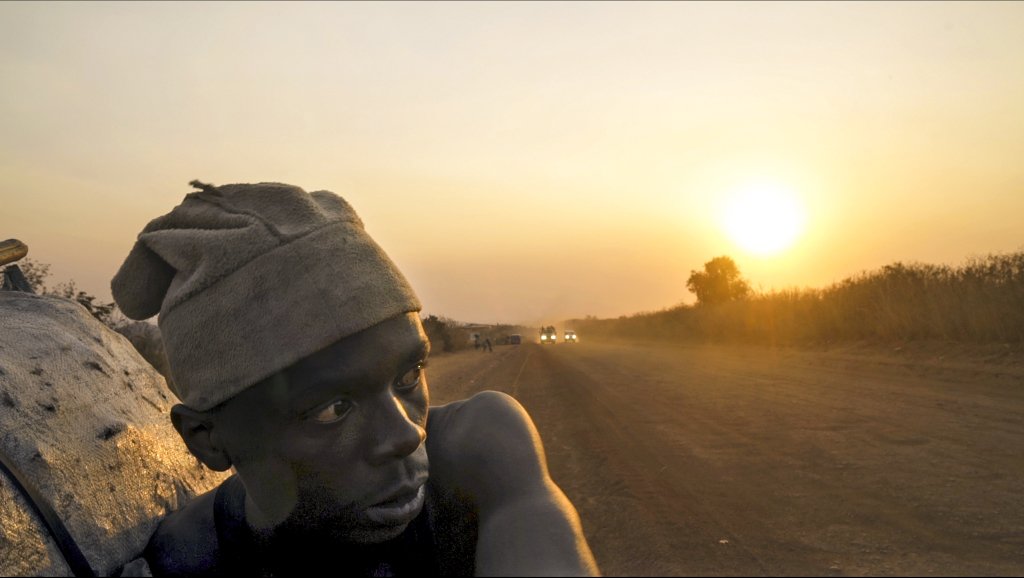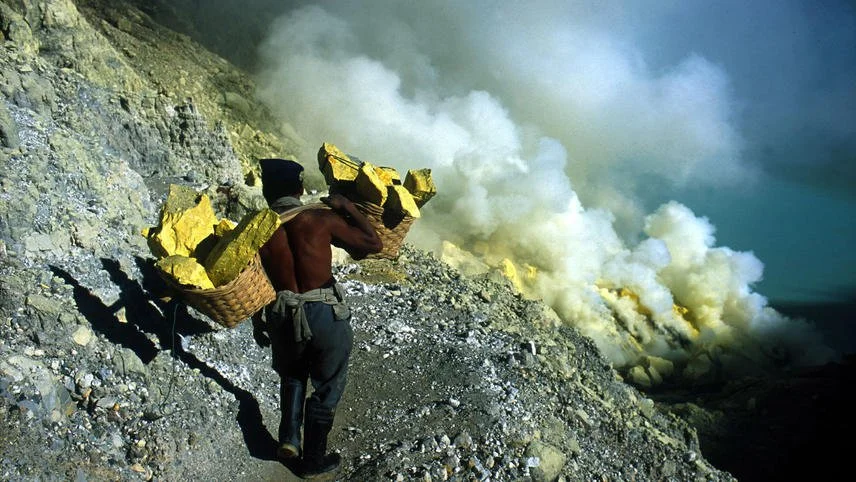Docs in Focus IV—Devotional Realms & Modern Labor
May: Docs in Focus IV, FLMTQ Releases 291-311
During the month of May Filmatique presents its first expanded documentary series—twenty contemporary nonfiction films. Topical strands range in theme from dictatorship and corruption in the post-Soviet world to explorations of spirit and devotion from such celebrated filmmakers as Ulrich Seidl and Gianfranco Rosi.
The third installation of Docs in Focus IV focuses on devotional realms and systems of modern labor in countries diverse as India, Austria, the Democratic Republic of Congo, Ukraine, Nigeria and Bangladesh. Gianfranco Rosi's first documentary Boatman observes life and death on the Ganges, while Ulrich Seidl's Jesus, You Know offers a fly-on-the-wall perspective of six Catholics conversing with the divine. Walk With Me provides an intimate portrait of the teachings of Thich Nhat Hanh, the recently departed and much beloved Vietnamese monk. Emmanuel Gras's Makala is a rhythmic, atmospheric portrait of a young father taking his charcoal to market; Michael Glawogger's Workingman's Death and Whores' Glory ruminate on the exploitative nature of modern capitalism in their labyrinthine depictions of human bodies at work. Justin Pemberton's Capital in the 21st Century translates French economist Thomas Piketty's landmark study of wealth and income inequality in the Western world to screen.
//
Boatman, Gianfranco Rosi (1993)
Boatman, Gianfranco Rosi // Italy, 1993
The Ganges River is one of India's most sacred waterways, providing drinking water to the nation's populace and irrigating fields of grain and vegetables. A source of renewal, it is also the final resting place for many, whose remains are burned on funeral pyres then sent downstream. A lone boatman floats, too, down the river, encountering tourists and Indians alike, sharing in their stories, joys and sorrows with calm detachment.
An immersive, meandering portrait of life and death on the Ganges, Boatman gains accumulative power from simple human interactions and the placidity of its unassuming protagonist. Celebrated filmmaker Gianfranco Rosi's first film premiered at Sundance, IDFA - Amsterdam International Documentary Film Festival, and Vienna.
Jesus, You Know, Ulrich Seidl (2003)
Jesus, You Know, Ulrich Seidl // Austria, 2003
Six believers enter a Catholic Church seeking an encounter with the divine. Ranging in age, both men and women lay themselves bare before Jesus in an act of private prayer. Their deeply personal questions, struggles, and fears resound throughout the cavernous church as they worship and give gratitude. In these meticulously framed cinematic tableaux, there is but one constant companion.
Punctuating the invisible nature of direct cinema with raw, spoken confessions, Jesus, You Know is an ambivalent artifact of faith, unnerving in its displays of intimacy and imbued with Ulrich Seidl's unmistakably ironical gaze. The Austrian auteur's ninth documentary premiered at Locarno, Toronto, CPH:DOX, and Karlovy Vary, where it won Best Documentary. John Waters named Jesus, You Know as his favorite foreign film of 2006.
Walk With Me, Marc J. Francis & Max Pugh // United Kingdom, 2017
Plum Village is a tiny oasis from the accelerated pace of modern existence. Set among the rolling hills of rural France is a community of Zen Buddhists, led by the legendary Vietnamese monk Thich Nhat Hanh. Here, seemingly ordinary tasks such as walking, eating, or sitting alone in thought gain spiritual significance. Calm and contented, the monk's disciples practice the art of mindfulness.
Immersed in the slow, meditative rhythms of the exiled monk's monastery, Walk With Me is a touching portrait of the late Thich Nhat Hanh's life's work. Marc J. Francis and Max Pugh's documentary premiered at SXSW - South by Southwest, and the Stockholm International Film Festival.
Capital in the 21st Century, Justin Pemberton (2019)
Capital in the 21st Century, Justin Pemberton / France-New Zealand, 2019
The entire fabric of contemporary society is underpinned by the phenomenon of capital. Wealth equals power, and power determines social relations. Or so Thomas Piketty would have you think. The rock-star French economist's scathing history of modern capital begins in the 1700s—when the average European was expected to live just 17 years—before swooping through tectonic shifts from the Industrial Revolution to Thatcher and Reagan-era privatization. Throughout the centuries, as today, the greatest obstacle to a more equal society is not technical, but ideological.
Featuring interviews with world-renowned economists such as Piketty, Kate Williams, and Suresh Naidu, Capital in the 21st Century presents a fascinating journey through social and economic systems of the past three hundred years. Justin Pemberton's seventh documentary premiered at CPH:DOX, Sydney, Jerusalem, and Rio de Janeiro.
Makala, Emmanuel Gras (2017)
Makala, Emmanuel Gras // France, 2017
Kabwita Kasongo is 28 years old, living in the Congo with his wife and young daughters. His dream is to somehow earn enough money to buy a plot of land where he can build his family a home. Having felled an enormous hardwood tree, he bakes the wood in an earthen oven and harvests charcoal (makala, in Swahili) from the ashes. With only a bicycle as transport, Kabwita embarks on the treacherous journey to market, up hills and along dusty roads, where he hopes to secure cash for his labor.
A rhythmic, cinéma-vérité portrait of a man in pursuit of a better life, Makala refracts the beauty of the Central African landscape through the arduous quotidian work of its protagonist. Emmanuel Gras's third documentary premiered at Guadalajara, New Directors/New Films; Bergen, where it won Best Documentary; and Cannes, where it won the Grand Prize - Critics' Week.
Workingman's Death, Michael Glawogger (2005)
Workingman's Death, Michael Glawogger // Austria-Germany-Indonesia-France, 2005
In the Donbass region of Ukraine, coal miners toil far below the surface of the earth, extracting carbon to heat their meager homes, selling anything extra for food. In Kawah Ijen, Indonesia, men scale treacherous mountain paths to the edge of a volcanic crater, where they harvest slabs of sulfur amid a putrid yellow fog. At an abattoir in Port Harcourt, Nigeria, workers toil in the harrowing task of slaughtering goats; in the Pakistani port of Gaddani, the pious yet poor deconstruct giant ships for scrap metal.
A stunning inquiry into increasingly invisible forms of human labor, Workingman's Death elucidates how global capital disproportionately exploits the poor and the marginalized in the pursuit of endless expansion. The second film in Michael Glawogger's 'globalization trilogy' premiered at Venice, Toronto, Gijón, where it won a Special Jury Award; Leipzig DOK, where it won the FIPRESCI Prize; and the San Francisco International Film Festival, where it won Best Documentary.
Whores' Glory, Michael Glawogger (2011)








